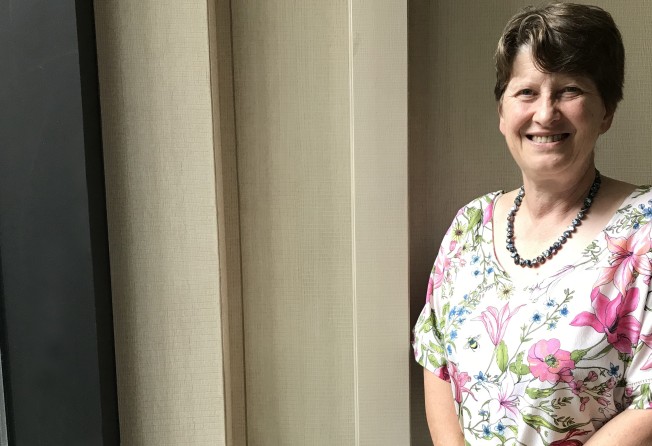Universities can benefit from being independent in many ways, Warwick provost suggests
Professor Christine Ennew tells the Post the challenges facing higher education leaders worldwide

While many local students and stakeholders request and fight for autonomy in university governance in Hong Kong, an international expert in higher education leadership believes that a high degree of independence is good for both universities and society in the long run.
“If you think globally, we [higher education leaders] all have a number of challenges in common, one of which is about governance and how we get the right level of autonomy for universities,” Professor Christine Ennew, provost of University of Warwick in Britain, tells the South China Morning Post.
Ennew says it is natural that “governments want to control universities, in some sense” because they are “important anchors for the communities and have big economic impact”.
However, if universities are to produce high-quality graduates who are critical thinkers, innovative and challenging, and can think for the longer term, “we’ve got to be independent from government and government control”, she suggests.
“Many universities are looking at the issue of how they get the right level of independence, how they still discharge their responsibilities to society, so we do genuinely contribute, but we are accountable for the money that we spend, and we are also sufficiently [autonomous] to educate the best students with the best staff, doing things what we think is right for our disciplines,” Ennew says.
“Governments have many conflicting demands on their time and on their money, so how you grow participation while maintaining quality is a big challenge, and that’s very much about how universities can start to identify alternative forms of funding.”
Commenting on the recent turmoil in Hong Kong universities, Ennew says: “We all want our students to be critical and think for themselves, and challenge and to ask difficult questions. But when that brings them into direct conflict with government, that’s really quite a difficult situation to deal with. Because governments are very nervous about [the] power that students can exercise, their ability to influence, and the students are potentially a threat.
“In the last UK election, it’s widely assumed that one of the reasons why the Conservatives did so badly was because the students voted for the Opposition. Now, the Conservatives still won, but the student vote was very significant, and that makes governments anxious,” she says.
Ennew believes better understanding, communication, and improving levels of trust between government and the students could be the solution.
“However, it is difficult when there’s a heavy dependence on public funding in universities: governments who put a lot of money in [them] will perhaps not always understand the long-term benefits of having a very critical and active student community.
“Institutions could play a role and encourage governments to understand the benefits of people who challenge their views,” she says.
“I’m very proud of the fact that we have got students who are innovative and [can] think critically, who challenge and who ask difficult questions,” Ennew says. “It shows that they have a good understanding of what’s happening and they’re willing to question and look for better ways of doing things.”
Warwick ranks as a Top 10 UK university in a number of third-party university rankings, and its business school is among the best in the world.
To Ennew, the strong tie with the industry and the ability to make research practical are key to the university’s achievement.
The university has recently partnered with car manufacturers including Jaguar, Land Rover and Tata from India to develop on the large-scale [production] of electric vehicles. “We have a facility that looks at self-driving cars, but also the battery technology that is needed to really ensure we can address our climate change responsibilities,” she adds.
Earlier in October, the British government announced an investment of £65 million (HK$669.8 million) to set up an independent, national institute called the Faraday Institution (FI) for energy-storage research. Warwick is among its seven founding universities.
“It’s much more about taking in innovation from the pure and basic science, prototype it, trial it, and make it viable at scale,” Ennew says. “It’s an interface between university and industry to dive innovation into the business world.”